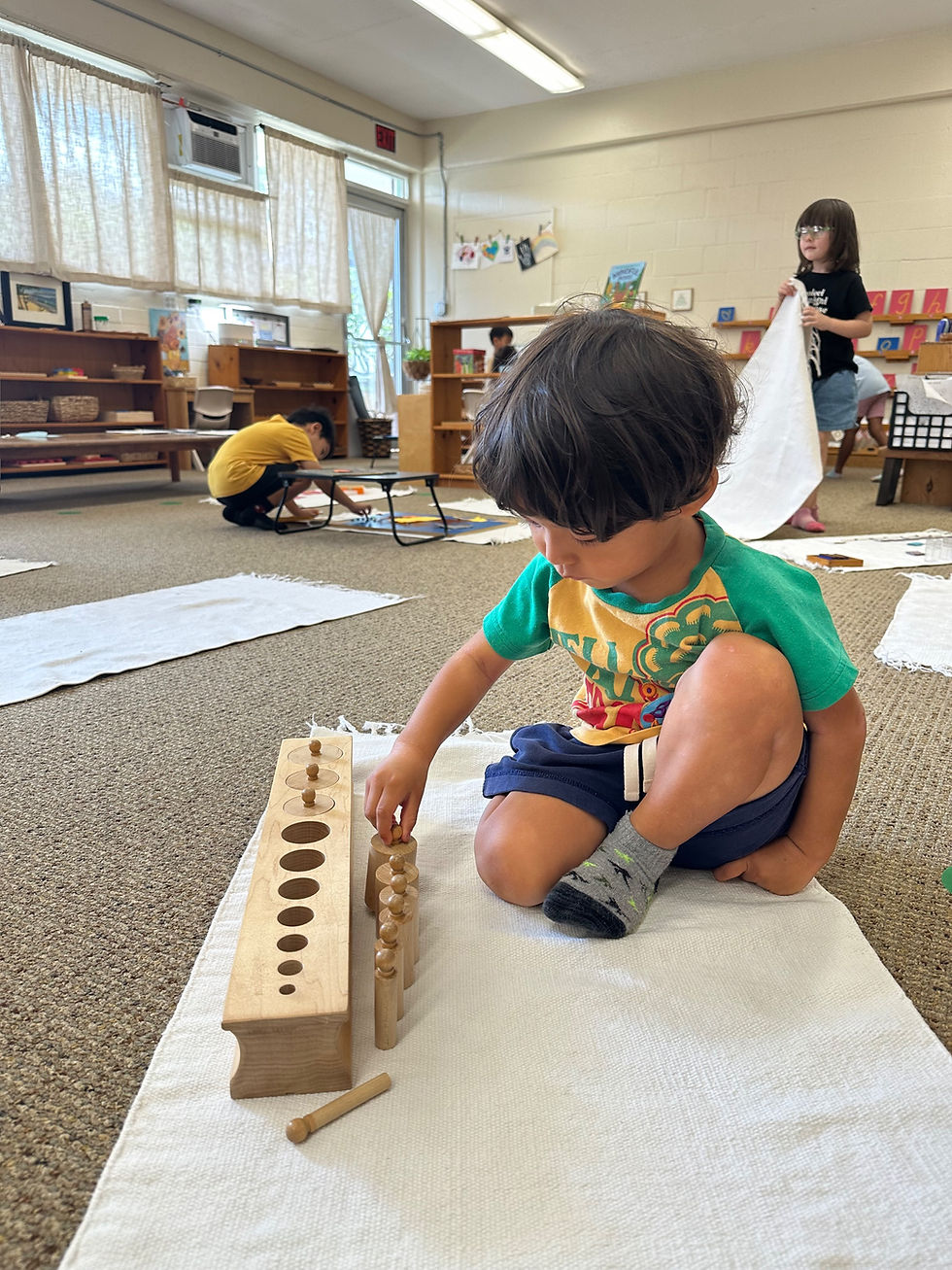A Gratitude Attitude
- Jyo Bridgewater

- Nov 27, 2024
- 1 min read
Updated: Jan 5
Dr. Maria Montessori was born in 1870. Throughout her long life, she experienced wars and injustice, but never lost her abiding belief in the essential goodness of humankind, and the faith that children held the key for the future. She was an advocate for world peace, and was honored for her work by the United Nations and nominated for the Nobel Peace Prize. She was directly involved in the development and founding of the UNESCO Institute for Education and lived all over the world before her death in 1952.
Her example of positive action, global citizenship, and care for others is very much a part of the legacy we honor and celebrate here at Montessori Community School. Traditional Montessori lessons of Grace and Courtesy, as well as Philosophy for Children (p4c), class meetings, and use of the Peace Rose, help children develop awareness of others and respect for different perspectives.
At its best, Thanksgiving can be a time when communities gather to reflect and be thankful. Trees of gratitude have sprung up on our campus, and the strains of “I have a gratitude attitude” waft up from the morning elementary court meeting.
I’ve always liked the story of Dr. Montessori saying that history should be taught by focusing on the inspiring examples of human endeavor. A study of wars, she said, would be like studying the history of transportation by only looking at crashes. Like our MCS founders, the Weber family, who sought an education for their child with Down’s syndrome, Dr. Montessori analyzed limitations, but focused on possibilities. May we all do the same.












